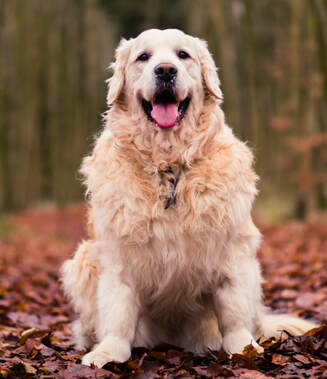Laurie Anne Walden, DVM  The thyroid, a gland in the throat, produces hormones that regulate many body functions. In dogs, the most common thyroid disorder is hypothyroidism, or low thyroid hormone production. Naturally occurring hypothyroidism is rare in cats. Causes In dogs, hypothyroidism almost always happens either for no known reason or because of an immune system condition called lymphocytic thyroiditis. Rare causes are cancer and thyroid malformation that’s present at birth. Hypothyroidism is more common in medium and large breeds than in toy breeds. Some breeds may be more likely than others to develop hypothyroidism [1]:
Signs Decreased thyroid hormone levels reduce the overall rate of metabolism in the body and affect many body systems. Changes in the coat and skin are the most common results of hypothyroidism, but some dogs have few or no symptoms. The signs vary from dog to dog and can include the following:
Diagnosis The signs of hypothyroidism are not specific; they can be caused many disorders other than hypothyroidism. Some symptoms can improve with thyroid hormone supplementation even if the dog doesn’t have hypothyroidism. For this reason, hypothyroidism can’t be diagnosed only by the signs or by response to treatment. Diagnosing hypothyroidism in dogs generally requires blood tests for more than 1 type of thyroid hormone. One of the main hormones produced by the thyroid is thyroxine (T4). Animals with hypothyroidism have a low blood level of T4. Most of the T4 in the blood is bound to proteins. The blood level of protein-bound T4 can be affected by illnesses other than thyroid disease. A blood test for total T4 (which includes protein-bound T4) is sometimes used to screen for thyroid disease, but this test by itself isn’t reliable for diagnosing hypothyroidism. The blood level of free T4 (T4 that is not bound to proteins) is more accurate for diagnosing hypothyroidism. Your veterinarian might recommend additional thyroid function tests if thyroid disease is suspected but not clearly shown on the initial blood tests. Treatment Hypothyroidism is treated by giving a thyroid hormone supplement. This medication is given by mouth once or twice daily for the rest of the dog’s life. Your veterinarian will likely recommend regular blood tests to be sure your dog’s dose is correct (for example, dogs that lose weight after a few months of treatment might need a different dose tailored to the new weight). Most dogs respond well to treatment. Reference
Photo by Jamie Street on Unsplash Comments are closed.
|
AuthorLaurie Anne Walden, DVM Categories
All
Archives
June 2024
The contents of this blog are for information only and should not substitute for advice from a veterinarian who has examined the animal. All blog content is copyrighted by Mallard Creek Animal Hospital and may not be copied, reproduced, transmitted, or distributed without permission.
|
- Home
- About
- Our Services
- Our Team
-
Client Education Center
- AKC: Spaying and Neutering your Puppy
- Animal Poison Control
- ASPCA Poisonous Plants
- AVMA: Spaying and Neutering your pet
- Biting Puppies
- Boarding Your Dog
- Caring for the Senior Cat
- Cats and Claws
- FDA warning - Bone treats
- Force Free Alliance of Charlotte Trainers
- Getting your Cat to the Vet - AAFP
- Holiday Hazards
- How To Feed Cats for Good Health
- How to Get the Most Out of your Annual Exam
- Indoor Cat Initiative - OSU
- Introducing Your Dog to Your Baby
- Moving Your Cat to a New Home
- Muzzle Training
- Osteoarthritis Checklist for Cats
- What To Do When You Find a Stray
- Our Online Store
- Dr. Walden's Blog
- Client Center
- Contact
- Cat Enrichment Month 2024
|
Office Hours
Monday through Friday 7:30 am to 6:00 pm
|
Mallard Creek Animal Hospital
2110 Ben Craig Dr. Suite 100
|
Site powered by Weebly. Managed by IDEXX Laboratories

 RSS Feed
RSS Feed